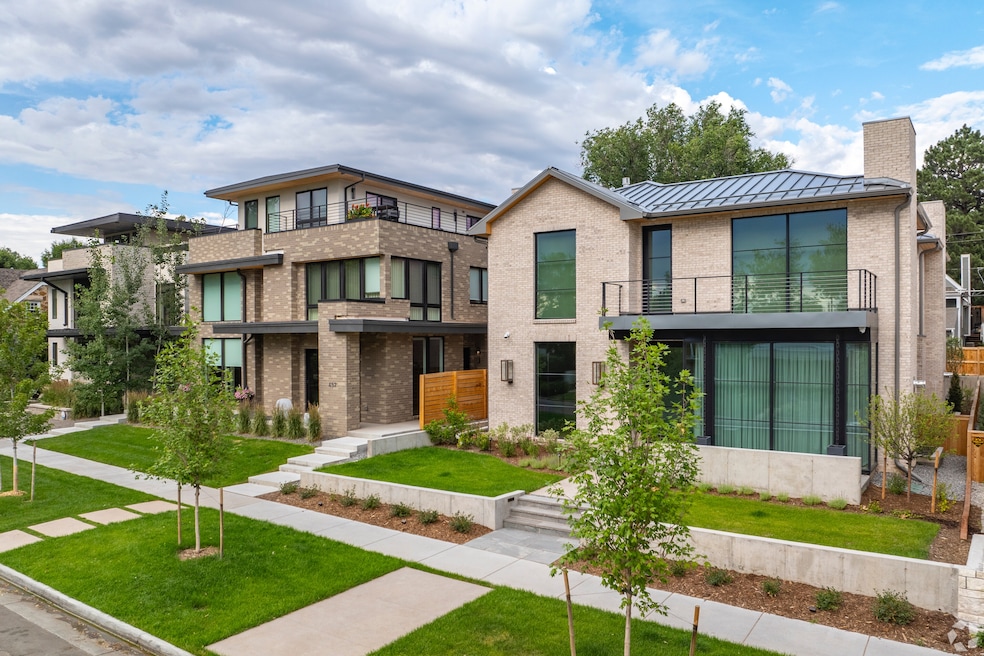It’s a great time to buy, but a challenging time to sell in Denver, according to local agents.
The Mile High City has shifted from having an inventory crunch, with a 66% annual increase of detached homes for sale in April, the Denver Metro Association of Realtors said in a monthly report. It’s one factor creating a buyer’s market amid listing price reductions and declining demand.
The higher inventory is an unseasonal trend for the market as it moves into the usually booming spring selling season.
“Usually, what we see from March through June is a big influx of buyers coming to the market wanting to buy what’s on the market, and there’s not enough available for them,” said agent David Schlichter of Compass, who noticed the market is now flipped and showings are down.
Schlichter said it’s a “substantially slower market.” Other agents in the area agree. Home sales year-to-date decreased 1.82% last month, according to the Denver trade group’s report. Agent Mckinze Casey of LIV Sotheby’s International Realty said homes that don't sell quickly linger on the market with just one showing per week. On average, a home offer comes in after 12 to 16 showings, said Casey.
It's a dramatic turnaround from the hot market in recent years, which agents say was fueled by the pandemic's housing demand and a wave of out-of-staters with remote work moving into Colorado.
“What happened is Denver was one of the pandemic boom towns,” said Denver-based agent Colleen Covell of Compass. “Home prices went up 40% in two years, but the salaries didn’t match that. It’s become too unaffordable, and interest rates are so high that buyers have stepped to the sidelines.”
Schlichter and Covell saw people move to the area from pricey markets such as New York City and California, and those buyers are now looking to move back for in-office work.
Net migration data shows Colorado saw more residents leave the state than move to it in 2022 for the first time, while Denver saw a relatively low population growth of 2.8%, according to the U.S. Census Bureau estimations for 2024.
Lower net migration and sustained high home prices have created a market that’s bending to buyers’ wants, agents say. And these buyers want turnkey homes at lower prices.
“It’s challenging for sellers, it’s a fantastic time for buyers,” said Schlichter.
Sellers are losing on home sales
Agents report seeing price reductions as the norm in Denver’s market today, up to 15% declines, and in the hundreds of thousands in declines for luxury homes.
“While sellers may have seen neighbors sell for very high numbers in the last few years, they have a hard time thinking they will sell for lower,” said Casey. “You saw this big run up and big peak, and for anyone who purchased in 2022 and 2023, when you need to exit, it is a challenge to walk away with a gain.”
Homes priced well and turnkey, meeting picky buyers' wants, will sell quickly, while those that don’t sit on the market for months.
“I think our inventory is a bit flooded with homes not prepared or priced according to what they would need,” said Casey.
Higher inventory with lower demand has begun to pull back home price growth. According to Homes.com April data, home prices increased modestly by 0.3%, signaling that higher inventory is pulling back home price growth.
Homes.com data shows Denver has the ninth-highest median home price across major metropolitan areas. The median home price in April for Denver was $595,000, while nationally, the median price in April was $385,000. The high home prices soften buyer demand too, and influence residents’ decisions to leave the state, according to agents.
“We’ve really cut out our middle class,” said agent Elise LoSasso with The Agency Denver, who notes part of the lower net migration could be influenced by the market's affordability challenges. “It’s very difficult here. That first-time homebuyer is between $700,000 and $900,000.”
LoSasso said the move-up home ranges up to $2 million, while “forever home” buyers usually spend between $2 million and $5 million.
Condos add to the high inventory
Many markets within Denver continue to sell well, said Casey and LoSasso. These include places with a reputable school district, space for a family, and, more than anything, good home conditions, like the neighborhoods of Cherry Creek and Hampden South. Home prices in Cherry Creek increased 19.4%, according to Homes.com data, and prices in the more modestly priced Hampden South neighborhood increased 18.6%.
Condos face an even greater challenge. Attached housing listings increased 81% year over year in April and 27.7% since March, according to the Denver Metro Association of Realtors.
"This is due to a combination of multiple factors: the high office vacancy rate in downtown Denver, the number of newly built luxury apartment buildings, substantial increases in HOA dues (mostly due to the increasing cost of building insurance) and more stringent lending guidelines for condos," said Jeannie Tobin, Denver-based director of market analytics for Homes.com and CoStar.
Condo owners are seeing the most losses in original purchase price, said Schlichter, which is due to the high downtown office vacancy as companies moved to remote work.
“It’s saturated right now,” said Schlichter. “A lot of condo sellers are sitting for month after month, and oftentimes when they sell, it’s for a substantial discount.”

